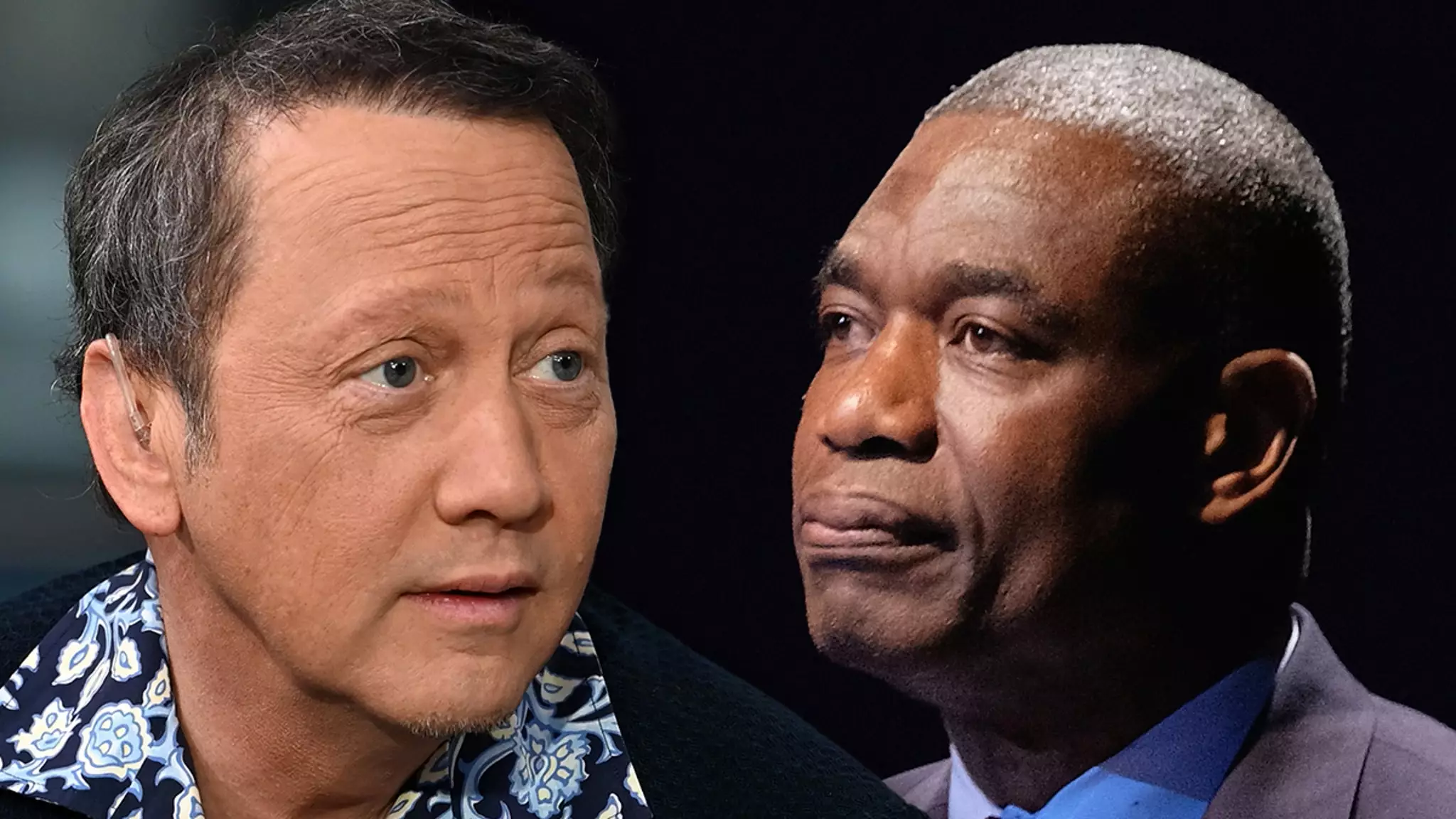The passing of notable individuals often prompts heartfelt tributes, allowing fans and peers to express their sorrow and celebrate their legacies. However, sometimes these expressions can take unexpected turns, revealing more about the author than the subject of the tribute. Such was the case following the death of basketball legend Dikembe Mutombo, when comedian Rob Schneider’s homage became a lightning rod for controversy.
In his tribute to Mutombo, Schneider commenced with a simple “Rest in Peace,” a phrase that ordinarily serves as a respectful acknowledgment of one’s life and achievements. However, the eulogy quickly veered into the territory of conspiracy and sensationalism, as Schneider chose to couple his sorrow with an implication about the COVID vaccine’s impact on health. By quoting an earlier video of Mutombo advocating for the vaccine, Schneider exploited this moment of grief to fuel his anti-vaccine rhetoric, raising questions about whether it was appropriate or ethical for him to draw such correlations.
While conspiracy theories surrounding COVID-19 vaccines have proliferated, many view Schneider’s remarks as exceedingly opportunistic. Instead of honoring Mutombo’s legacy and his fight against brain cancer, Schneider highlighted a narrative that insinuates fault in the very medical advancements that numerous experts laud for saving lives. Attaching such a speculative notion to the memory of a beloved figure seems to reflect Schneider’s willingness to prioritize personal beliefs over respect for the deceased.
The backlash was swift and severe. Social media users flooded the comments, most expressing disgust at Schneider’s choice to mix grief with propaganda. One user poignantly noted the irony in Schneider’s attempts to correlate Mutombo’s vaccination status with his death from known medical issues, like brain cancer. This kind of reasoning has been widely discredited, with many commentators emphasizing the importance of fact over personal conjecture, particularly when discussing sensitive subjects like health.
Additionally, the critique was not limited to Schneider’s views on vaccination alone. Some commentators took the opportunity to address Schneider’s personal life, pointing out his contentious relationship with his daughter, Elle King. These remarks reflect a broader societal frustration with public figures who use their platforms in a manner deemed irresponsible or harmful. In a world where misinformation can have real consequences, trumpeting personal belief systems at the expense of factual discourse leaves a sour taste among audiences.
Rob Schneider has clearly positioned himself as an individual unafraid to espouse controversial opinions, regardless of public sentiment. However, this steadfastness raises essential questions about the responsibilities of those with a platform. Is there a line between freedom of speech and spreading harmful ideologies? As more public figures become embroiled in the discussion around COVID-19 vaccinations, the audience is left to navigate the murky waters of celebrity influence versus factual integrity.
Ultimately, Schneider’s tribute to Mutombo serves as a stark reminder of how sentiment can be twisted into something far darker. While it is crucial to encourage open dialogue about health and safety issues, there is a pressing need for compassion and respect, especially during moments of loss. The legacy of a legend like Mutombo deserves celebration, rather than being conflated with divisive narratives.

Leave a Reply